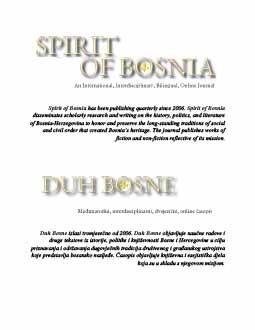
We kindly inform you that, as long as the subject affiliation of our 300.000+ articles is in progress, you might get unsufficient or no results on your third level or second level search. In this case, please broaden your search criteria.



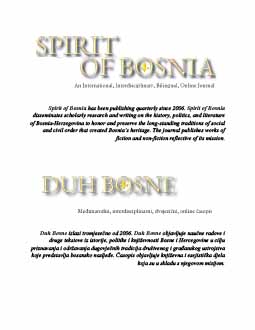
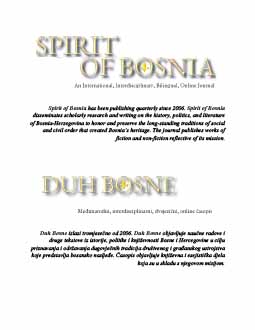
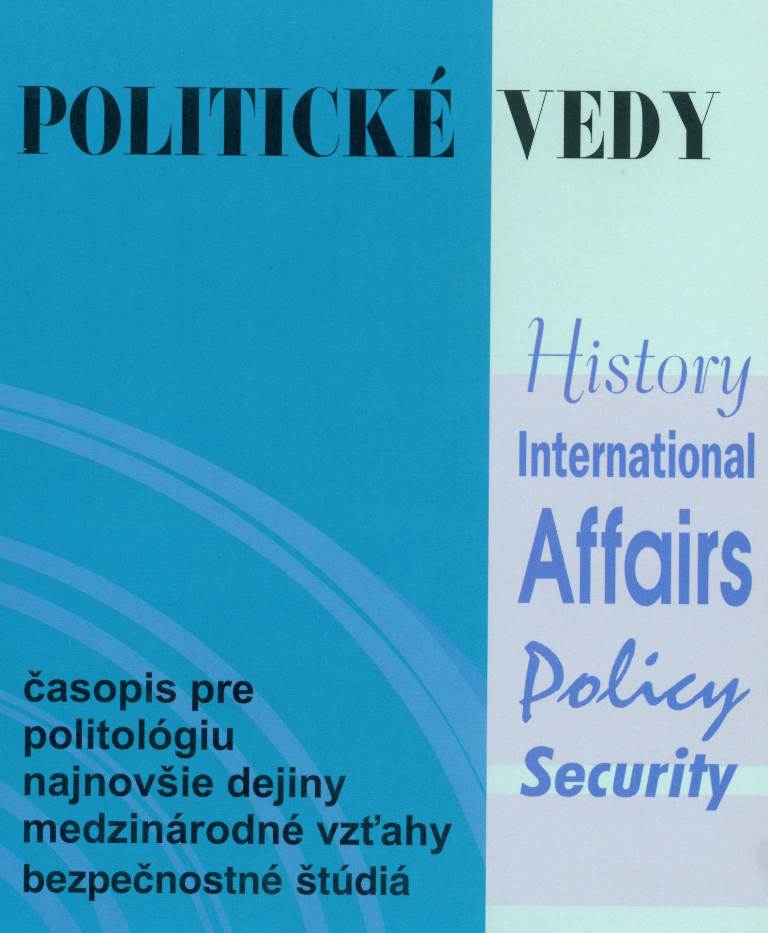
The aim of this paper is to study a specific aspect of the Communist foreign propaganda policy in Latin America: its cultural influence through the export of films. Renewed after Stalin´s death, Soviet cultural propaganda concentrated on gaining the favour of foreign public. Particularly in Argentina, several propaganda techniques were implemented. Although the export of films was just one of them, it soon became very successful thanks to the collaboration of a local cultural mediator, the film distribution company Artkino Pictures, as well as its owner and founder, Argentino Vainikoff. His expertise in the field actually gained him a new business deal with Czechoslovak filmography, which somewhat contested USSR imagery. In all, here –with the aid of oral history as well as contemporary press analysis– we argue that Artkino´s role in the import of an idealised imaginary of Communism was crucial and had a particularly strong impact on middle-class citizens of the cultural and artistic regional centre that Buenos Aires was in the 1950s and 1960s, and from where all Latin America, as the Soviets soon acknowledged, could be reached.
More...
The paper regards comparative studying of the semantic devices of euphemization used in Russian and German political texts. Based on the public speeches of the political leaders of Russia and Germany, the distinctive features and general functions of political euphemisms as effective means to conceal the genuine sense of utterances are revealed. The most frequent semantic means of negative meaning reduction are found in both languages. They are the usage of lexemes with diffusive semantics, metaphors, diplomatic clichés, and collocations, as well as the introduction of lexemes with positive connotations, etc. The differential and common for both languages tendencies of political discourse euphemization are determined.
More...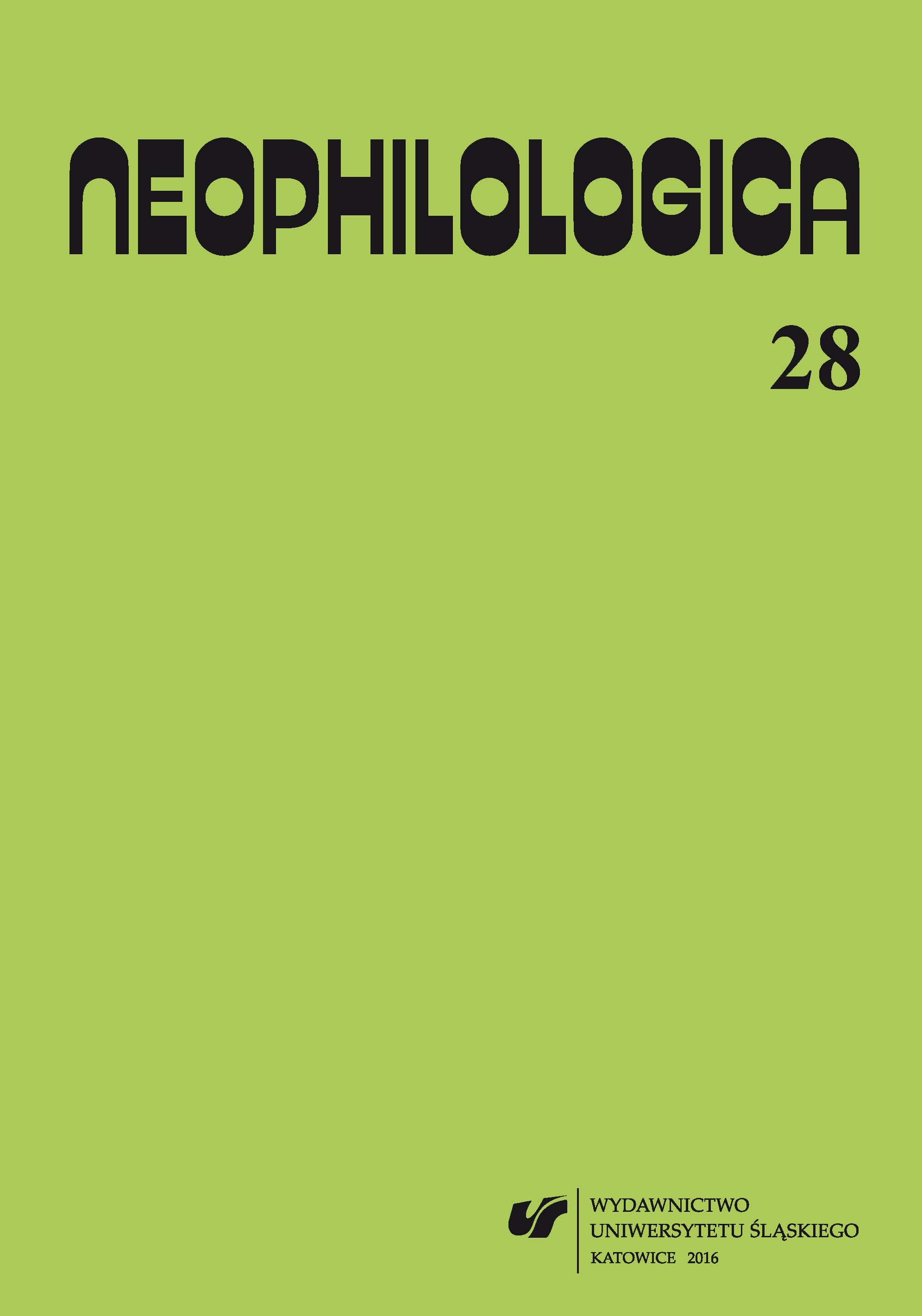
This paper focuses on two questions. Firstly, how the use of argumentative anaphora to express an opinion / truth dissociation (Perelman) should be described in terms of grammatical / lexical resources. The other question has a methodological dimension: in which aspects could this approach distinguish itself from linguistic or discursive studies?
More...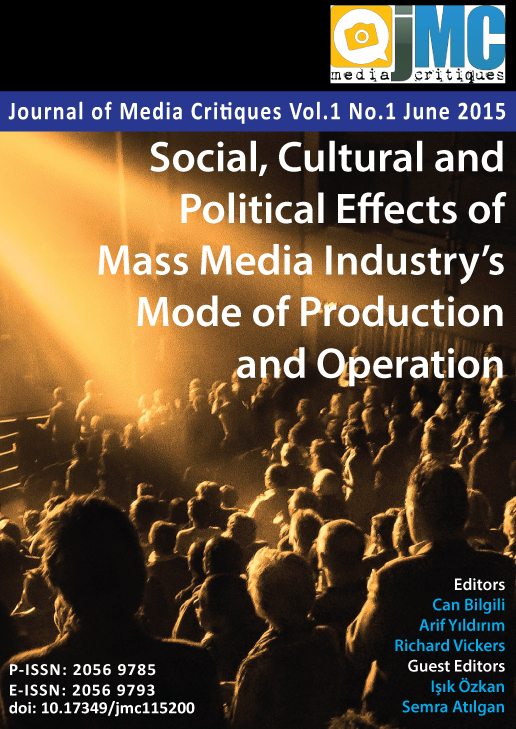
As the nexus between film industry and state apparatus has grown critical and complex in the wake of war on terror, academic circle have paid attention to identify the patterns of relationship between entertainment industry of a country and its foreign policy. To understand the role of the soft power in assisting governments to secure their interests at international level, this article examines the relationship between Bollywood and the Indian foreign policy through the lens of critical political economy of communication approach. Popular films portraying tension and cooperation between the South Asian neighbors were critically analyzed, and the results indicated that Bollywood closely followed the foreign policy initiative of the Indian government.
More...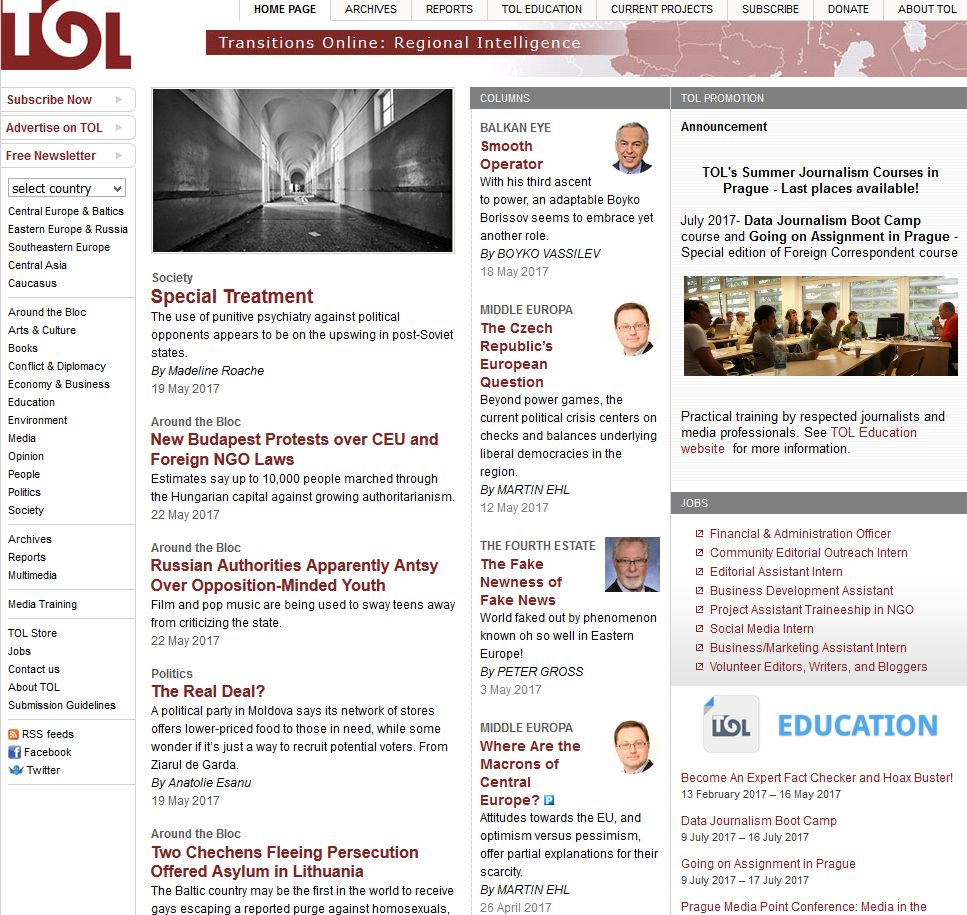
Estimates say up to 10,000 people marched through the Hungarian capital against growing authoritarianism.
More...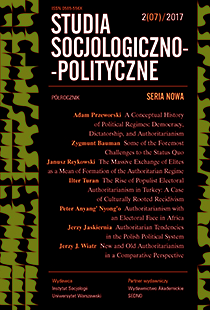
Donald Trump’s election, results of the British referendum on membership in the EU and the rise of populist parties in Europe constitute various aspects of the challenges to the status quo resulting from the growing economic and cultural gap between privileged elites and the masses, as well as from the immigration from less developed regions to the rich countries of North America and Western Europe. The existing democratic systems have been unable to cope with these challenges and a fundamental change in the status quo is necessary if authoritarian trend is to be stopped.
More...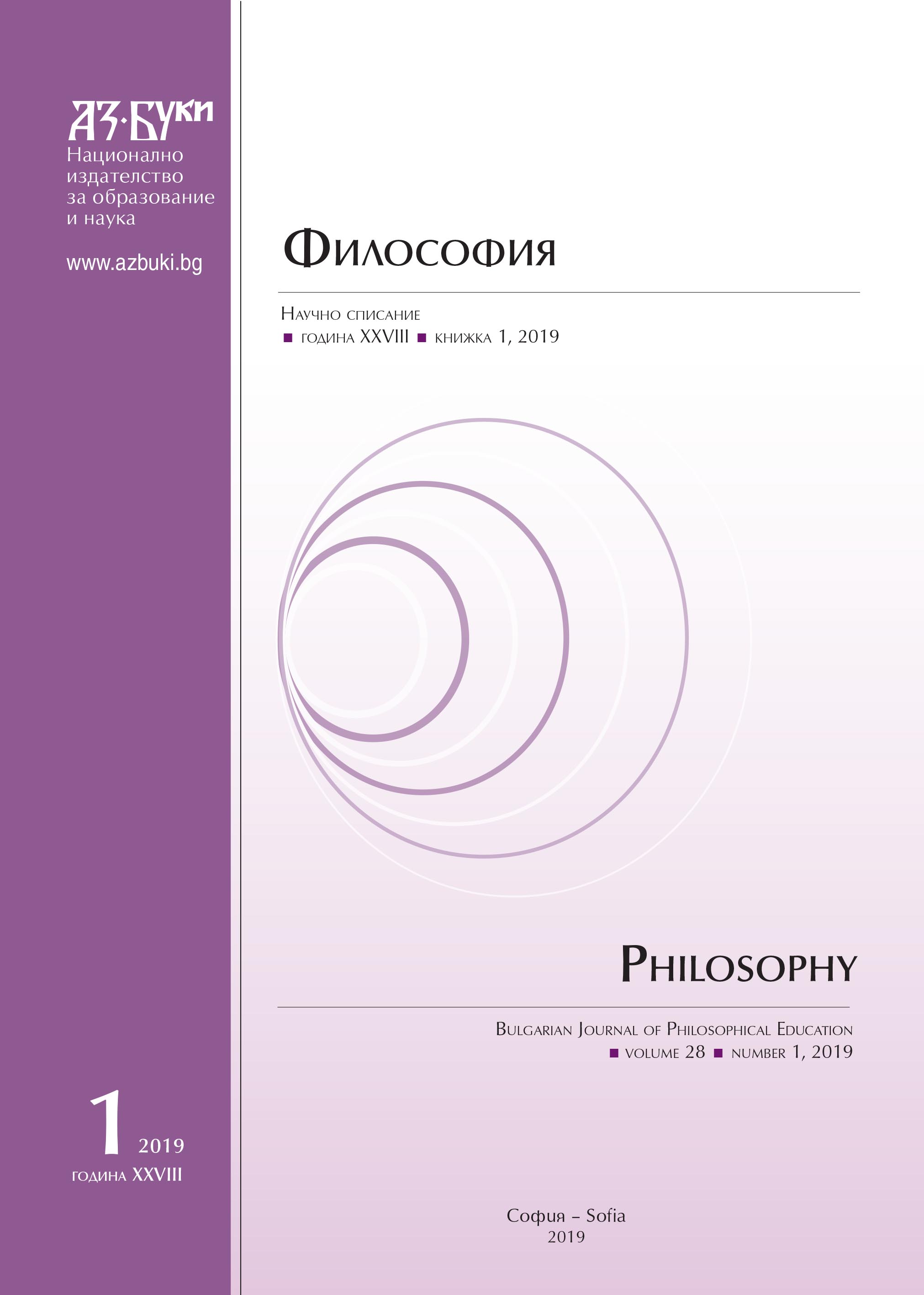
The main goal of the paper is to clarify the essence and the meaning of the concept (and phenomenon) “civic educated-ness” in the context of Philosophy of Education. It is determinative, “fundamental” but neglected and omitted characteristic of civic education. A number of problems which stay in the focus of Bulgarian academic thought are discussed in the article. On the basis of a philosophical-historical analysis some original theses are propounded. The central thesis is the determination of the goal of civic education which is the achievement of civic educated-ness – a unity of personal “integrity” and “virtuousness”. Form this point of view the idea that civic education consists of two comparatively independent levels is proposed. The first level is bound with the “citizenship” in the juridical sense. The second is bound up with the realization of the socialpolitical activity and identity of the citizen and that is why this second level should be built upon the first one. It also should be the ultimate goal of the process of civic education – education in active citizenship
More...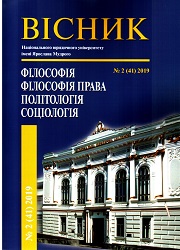
Problem setting. Evolution of media led to the fact that in addition to their main functions, they began to perform certain functions of political parties, namely political socialization and mobilization. Therefore, one of the central places in the election campaigns of political parties is occupied by the media, and their participation acts as an independent institution of democracy. The Austrian media system represents special model of functioning of media which has an impact, both on political outlook of the Austrians, and on transformation of the electoral strategies of political parties of Austria.Recent research and publications analysis. The topic of the influence of the media on political orientations of electorate, political communication and strategies became a studying subject for scientists. (D. Dubov, D. Farrell, N. Garmash, O. Gruber, K. Kholodkovsky, Z. Komilova, M. Lettner, S. Lisova, A. Nazarbetova, P. Norris, F. Plasser, G. Plasser, P. Ulram and other).Paper objective. The article analyzes the stages of the evolution of election campaigns and the development of a political communication system in the Republic of Austria. The purpose of the article is to show, with the example of the evolution of the Austrian media system, its influence on the transformation of the political world outlook and electoral strategies of the Austrian political parties.Paper main body. A modern democratic society needs politics and political mass media. On the other hand, politics needs the society itself (voters), which, in turn, is sufficiently achieved only through the media.In the development of the political communication system in Austria allocate three stages (according to F. Plasser and P. Ulram): 1) between 1945 and the middle of the 60th of the 20th century - “domination of party with the newspaper”; 2) the middle of the 60th - the beginning of the 90th of the 20th century - “television” phase; 3) since the beginning of the 1990th years till today - “multimedia diversity”. Thus, the perception of politics occurs through various media channels, which leads to the fragmentation of political communication.Owing to social changes and technical progress, the struggle to retain their dominant position in the Austrian party system forces political parties to look for new methods to attract the electorate, hence their election campaigns become more professional. Analysis of election campaigns in the period 2006-2017 allows you to highlight the elements of their “Americanization”, “personalization”, “negativization”. In turn, the strategies by which candidates and parties attract votes within the election campaigns are also influenced by factors such as the configuration of political institutions and the structure of the media system. A specific feature of the Austrian media system, which belongs to the democratic corporatist model (according to the classification of D. Hallin and P. Mancini), is the relatively late realization of the dualization of the television market and strong monopolistic media structures at the national level.There are four types of Austrian voters using political information and media: 1) traditionalist, the information-conscious, politically-involved (largest Austrian People’s Party voter share); 2) established, the information-interested, politically close (largest Social Democratic Party of Austria voter share); 3) modernity, politically distant, not interested information (votes for the Austrian Green Party more often); 4) unprivileged, dissatisfied with the policy, moderately informed (a high proportion of voters of the party “Alliance for the Future of Austria” and the Freedom Party of Austria).Conclusions of the research. Traditional media are an important and primary source for political information and decision making in elections, which leads to a trend of politicization of the media. The research conducted by the author allows to come to a conclusion that changes in political agitation, as a rule, need to be considered as reaction to the previous changes in a media system and electorate, and from features of modern Austrian election campaigns it is possible to allocate orientation to television and media.
More...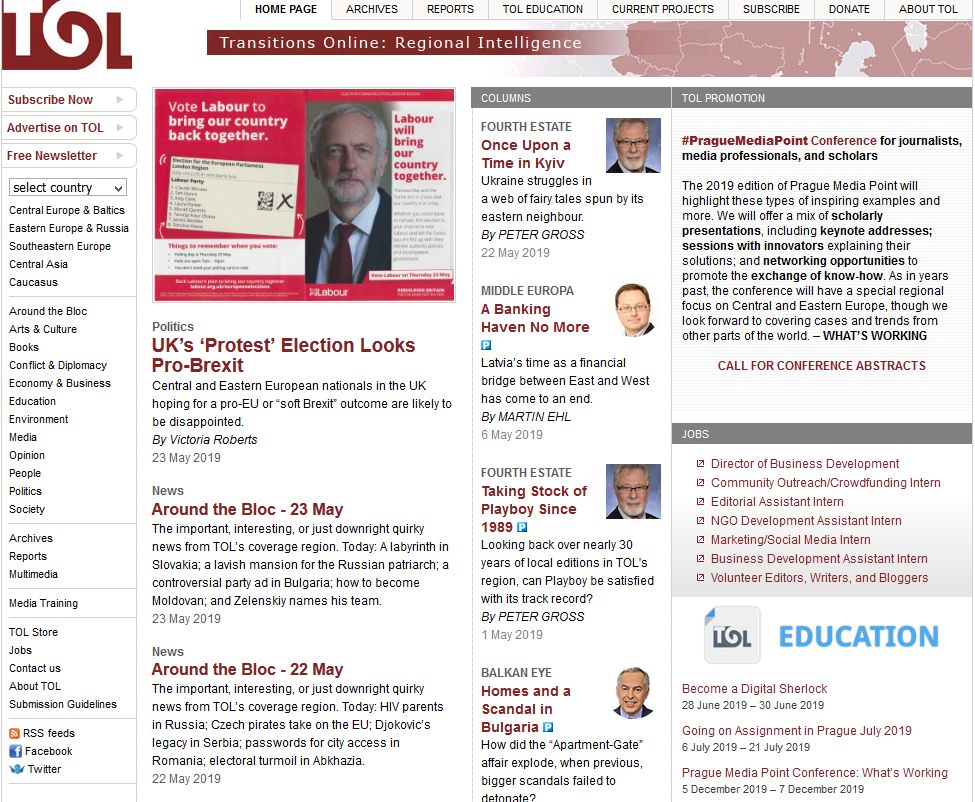
The important, interesting, or just downright quirky news from TOL’s coverage region. Today: protests in Mongolia; Orthodox squabbles in Eastern Europe; Russian nuclear threats; an uncertain future for Hungarian science; and weed-killing in the UK.
More...
Transitions Online_People-No Mass Exodus of CEE nationals From Pre-Brexit UKMigration statistics show citizens of CEE countries that joined the EU in 2004 were leaving the pre-Brexit UK before December 2018, but that is not the whole story.
More...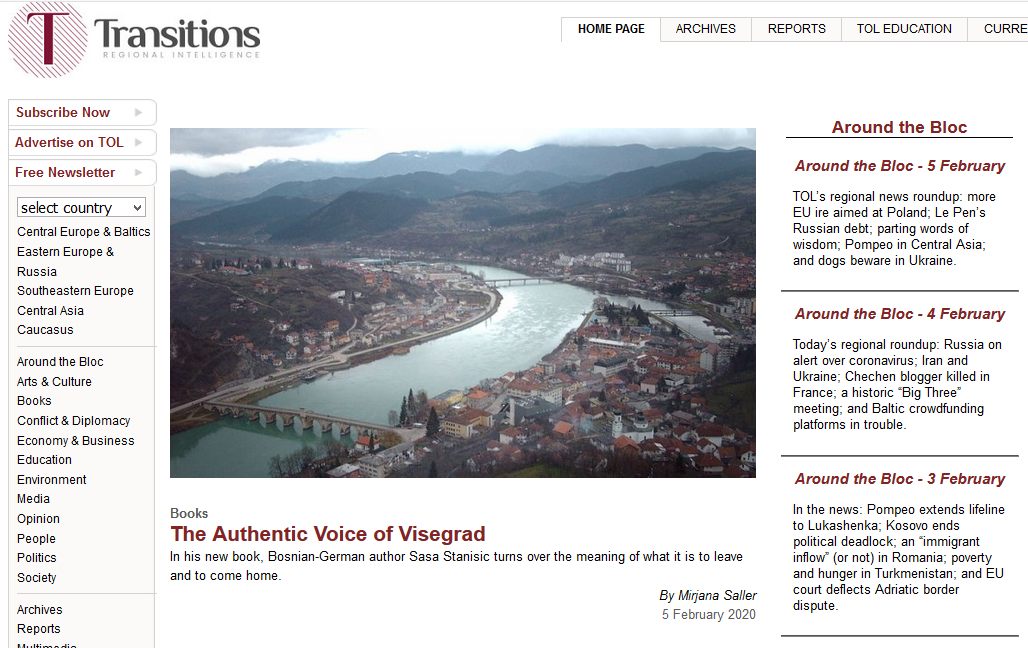
In the news: Pompeo extends lifeline to Lukashenka; Kosovo ends political deadlock; an immigrant inflow (or not) in Romania; poverty and hunger in Turkmenistan; and EU court deflects Adriatic border dispute.
More...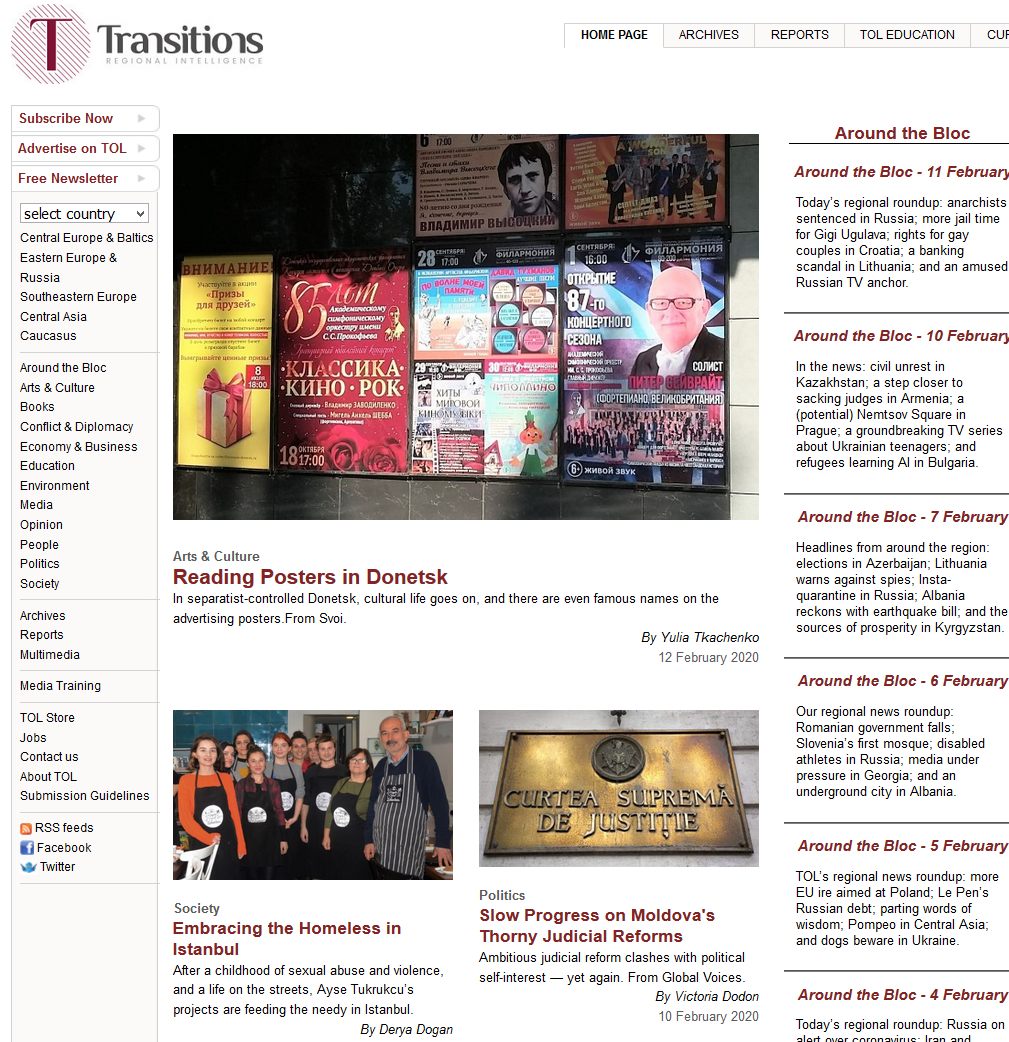
In the news: civil unrest in Kazakhstan; a step closer to sacking judges in Armenia; a (potential) Nemtsov Square in Prague; a groundbreaking TV series about Ukrainian teenagers; and refugees learning AI in Bulgaria.
More...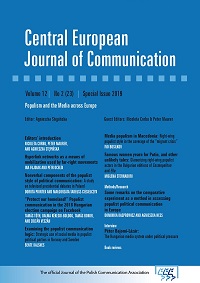

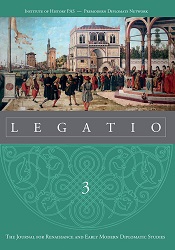
Splendid Encounters VIII: Les Gestes De La Diplomatie / The Gestures of Diplomacy, Gifts, Ceremony, Body Language (1400–1750), Conference, 30–31 May 2019, Toulouse, University Toulouse Jean Jaurès
More...